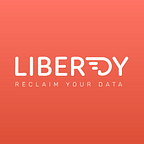Another Facebook Privacy Fail. So, What’s Next?
Last week most of us were still reeling from fresh revelations that Facebook had entered a series of data sharing deals with up to 60 device manufacturers that exposed private information on users and their friends. Four of these agreements were with Chinese manufacturers with close government ties. The hits kept coming through and by Thursday a new privacy breach was making headlines.
A bug in the social network’s privacy settings occurred when the company was testing a new feature. The bug lead to 14 million users’ private posts from May 18th until May 22nd being made public. On May 27th the glitch was finally fixed, however, it took until June 7th, for all the affected users to receive a personal notification with an apology from the company and a list of their posts that had been inadvertently shared publicly.
Finding it hard to keep up? You’re not alone, so let’s review.
A quick look at Facebook’s record over the last couple of months makes for a depressing read. Both these events come close on the heels of the Facebook — Cambridge Analytica scandal that hit the press in early April, where the privacy of 87 million Facebook users and their friends was compromised.
In addition, April saw the publication of revelations by Princeton researchers that the company’s Log in with Facebook feature could be used to harvest data that users were unaware they were providing.
A TechCrunch story also came out in April, which revealed that Facebook CEO Mark Zuckerberg, and other top executives, were able to delete old messages from Messenger, a feature denied to all other users.
So where does this leave us?
Despite all the scandal it seems like users have not been scared away from using online social networks. Equally our general online activity is set to increase, as more of our shopping, research, work and play takes place via the web. Consequently, the harvesting of our personal data is big business, worth hundreds of billions per annum.
Clearly, if we aren’t all going completely off the grid, we need to find a way of financially incentivizing the ad industry to protect user privacy and redress the balance of power.
The first step in this process took place on May 25th, 2018, with the introduction of the General Data Protection Regulation (GDPR). The GDPR is an EU law, which states that the user is the rightful owner of their data and companies wishing to use the data they have gathered on their users must first gain informed consent. Users can request a digital copy of the data that has been collected about them and they have the right to transfer it between service providers. They can see exactly how their personal information is being used, and by whom, choosing when to provide or withhold their consent.
One company is harnessing the power of this law to protect users and re-envision what is currently an unfair and unaccountable advertising ecosystem that exploits users and serves the interests of the privileged duopoly of Google and Facebook. The Liberdy Data Foundation is a non-profit, blockchain based initiative that has the ambitious goal of overhauling the data marketplace, to create a democratic advertising economy where the user becomes an equal partner, who controls their personal information, and is paid for its use.
Using the Liberdy app, the user can instantly extract their personal data from the companies collecting their information, such as Google and Facebook. The data they decide to share is then automatically segmented and depersonalized, so they can provide their gender, age, likes, status or location anonymously, without revealing their actual identity. Most importantly, the user is financially rewarded every time they view a targeted ad, or purchase a product or service, based on the data they shared.
The Data Foundation is powered by blockchain technology, ensuring a highly encrypted, secure and transparent environment for the storage, purchase and sale of user data. All transactions are published on a public ledger and since the blockchain is a decentralized system, information is dispersed across the network, and is far safer, as the data is not stored in a single location.
The Liberdy Data Foundation is shining a light into the dark corners of a digital advertising world where, up to now, a few incredibly powerful companies have controlled all user information and been its sole beneficiaries, while showing a consistent disregard for user privacy.
The Foundation promotes a fair and open data economy, where users control their data and earn from its use. Meanwhile advertisers of all sizes gain access to a vast pool of first-hand, verified, consent-based data that previously was not accessible outside the walled gardens of Google and Facebook. Also, publishers benefit from top quality data, access to new audiences and the option to encourage users to provide consent with the offer of premium services. For the first time ever, everybody wins.
Clearly public scandal isn’t enough to incentivize Facebook and the other online tech giants to take greater care with user data, and work against their own interests to create a fairer digital advertising economy. But that may not matter anymore as the public begins to finally wake up. The time is ripe for change and Liberdy is leading the charge by showing what an alternative advertising ecosystem looks like.
To learn more check out Liberdy.io, join our communities via Telegram, Twitter, Facebook, Linkedin to get the latest updates, or email us at info@liberdy.io
